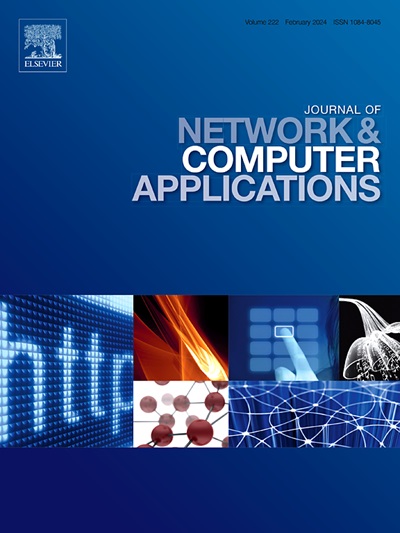工业边缘计算的主动ris辅助任务分区和卸载
IF 8
2区 计算机科学
Q1 COMPUTER SCIENCE, HARDWARE & ARCHITECTURE
引用次数: 0
摘要
在工业5.0中,智能工厂中的智能设备将生成大量需要低延迟的计算密集型任务。由于本地设备的计算资源有限,需要通过无线网络将任务分区并卸载给边缘服务器进行端到端协同计算。然而,智能工厂通常位于低层建筑中。智能设备与边缘服务器之间的直接卸载路径容易受到高层建筑和树木的阻碍,导致无法忍受的长时间任务卸载延迟甚至卸载失败。为了解决这一问题,我们开发了一种主动可重构智能表面(RIS)辅助的端缘协作任务划分和卸载模型,该模型通过主动RIS反射通信信号来帮助任务卸载。我们提出通过共同优化任务划分和卸载决策,重新配置有源RIS的相移和放大因子,以及通信和计算资源分配来最大化系统效用,旨在节能地为工业计算任务提供延迟保证。我们制定,分解,并从理论上分析问题。分析了卸载决策的上界和下界、传输功率和受延迟界约束的计算资源。基于分析结果,提出了一种两阶段启发式算法RISADA来解决这一问题。结果表明,本文提出的延迟保证方案在降低能耗的同时是有效的。本文章由计算机程序翻译,如有差异,请以英文原文为准。
Active RIS-assisted task partitioning and offloading for industrial edge computing
In Industry 5.0, smart devices in intelligent factories will generate numerous computation-intensive tasks that require low latency. Due to the limited computation resources of local devices, it is required to partition and offload tasks to edge servers via wireless networks for end-edge collaborative computing. However, intelligent factories are usually located in low-rise buildings. The direct offloading paths between smart devices and edge servers are vulnerable to being obstructed by high-rise buildings and trees, leading to intolerable long task offloading delays and even failure in offloading. To tackle this problem, we develop an active reconfigurable intelligent surface (RIS)-assisted end-edge collaborative task partitioning and offloading model, which assists task offloading by reflecting communication signals through the active RIS. We propose to maximize the system utility by jointly optimizing the task partitioning and offloading decisions, reconfiguring the phase shift and amplification factor of the active RIS, and communication and computation resource allocation, aiming at energy-efficiently providing delay guarantee to industrial computation tasks. We formulate, decompose, and theoretically analyze the problem. The upper and lower bounds of offloading decisions, transmission powers, and computation resources constrained to delay bounds have been analyzed. Based on the analytical results, a two-stage heuristic algorithm, RISADA, has been proposed to address the problem. The results demonstrate the efficiency of our proposal for the delay guarantee while reducing energy consumption.
求助全文
通过发布文献求助,成功后即可免费获取论文全文。
去求助
来源期刊

Journal of Network and Computer Applications
工程技术-计算机:跨学科应用
CiteScore
21.50
自引率
3.40%
发文量
142
审稿时长
37 days
期刊介绍:
The Journal of Network and Computer Applications welcomes research contributions, surveys, and notes in all areas relating to computer networks and applications thereof. Sample topics include new design techniques, interesting or novel applications, components or standards; computer networks with tools such as WWW; emerging standards for internet protocols; Wireless networks; Mobile Computing; emerging computing models such as cloud computing, grid computing; applications of networked systems for remote collaboration and telemedicine, etc. The journal is abstracted and indexed in Scopus, Engineering Index, Web of Science, Science Citation Index Expanded and INSPEC.
 求助内容:
求助内容: 应助结果提醒方式:
应助结果提醒方式:


